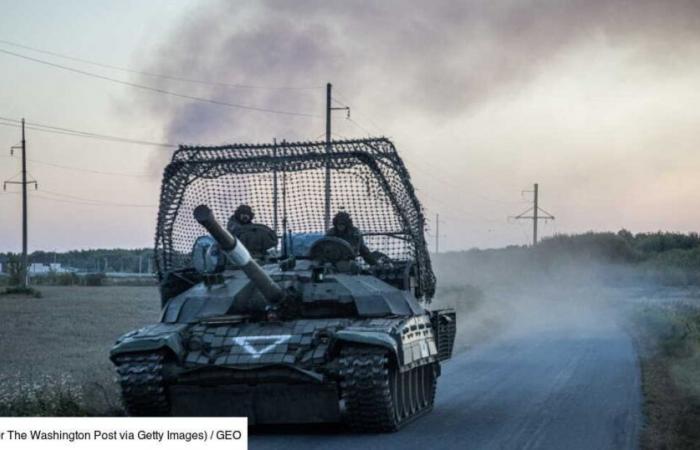It has now been almost four months since the Ukrainians decided to give Moscow a dose of its own medicine, by launching, to everyone's surprise, a counter-offensive in the Russian oblast of Kursk. In the heart of August, armored vehicles under the yellow and blue flag broke through the Russian lines to seize several hundred square kilometers of tricolor land. Since then, the Ukrainian contingents have suffered severe attacks from Kremlin troops, eager to regain their territorial integrity.
According to a high-ranking Ukrainian military source interviewed by France24, kyiv has to date lost 40% of the territories taken in August in the oblast. “Today we control approximately 800 square kilometers. We will hold this territory for as long as it is militarily appropriate.” Moscow's attacks have increased in force since Donald Trump – whose conduct towards the conflict remains uncertain – was re-elected to the presidency of the United States. Vladimir Putin intends to reestablish Russian authority in these lands before February.
Ukraine – Russia: military planes of the war
The Russian counter-offensive which destroys stocks
Volodymyr Zelensky assured, Monday November 11, that 50,000 Russian soldiers had been mobilized around the Ukrainian salient in the Kursk province. Figures confirmed on the American side. According to sources, between 10,000 and 11,000 of them are North Korean.
The Russian counter-offensive – which sometimes brings the number of daily assaults to 6 -, although allowing Moscow to gain ground, is terribly expensive. In human terms, of course, but also in terms of equipment, the sinews of modern war.
According to Forbes, Russian regiments and brigades in Kursk lost 364 pieces of heavy equipment — mostly tanks, infantry fighting vehicles and trucks — between August 6 and November 26. A total which exceeds that of kyiv, here in a defensive position: 319 Ukrainian vehicles and other equipment were destroyed, abandoned or captured, most of them having been lost during the first weeks of the invasion.
It is on the road to Zelenyi Shlyakh, a tiny hamlet which overlooks the Ukrainian oblast of Sumy over the southern border, that the losses multiply, details Forbes. The road to Zelenyi Shlyakh has become a “highway of death”, “a trap for Russian forces”announced the 225th yellow and blue assault battalion on Friday, November 29. “The fields are mined, the road is targeted by our artillery and every movement is carefully monitored”.
The carcasses of Russian armored vehicles are piled up on the asphalt axis. The latest ones came to a standstill on Friday November 29. “Three Russian BMD-2s of the forces [aéroportées] attacked our positions and were stopped by mines placed by my company”reports Kriegsforscher, a drone operator for this Marine Corps company cited by Forbes.
“Then they were destroyed by artillery and drones [en vue subjective — FPV].” Smoldering debris along the Zelenyi Shlyakh road, recent assaults have been on BMP and BMD tracked combat vehicles, MT-LB armored tractors and Buran armored trucks. The BTR-82s, in particular, seem to be running out.
New, unsuitable vehicles
Since the start of its war in Ukraine, the Russian army has counted on its immense stocks of Soviet weapons, scattered across the territory, established for GEO Léo Péria-Peigné, researcher in armaments and defense industry at the Center for Defense Studies. security of the French Institute of International Relations (IFRI), in March. According to the Oryx count of Russian losses, Moscow lost more than 19,000 units of weapons, of which BMDs accounted for the lion's share. Stocks are dwindling, and Russia, cut off from its supplies of Western parts, will not be able to reconstitute its arsenal identically.
The next attacks could be very different from the previous ones, judges Kriegsforscher, quoted by Forbes. The drone operator predicts there will be fewer tracked vehicles and more wheeled vehicles. Exit the BMP and BMD, hello the Tigr and Typhoon armored trucks, easier and faster to produce. BTR-82 wheeled combat vehicles are already arriving in greater numbers on the front line.
The 50,000 Russian soldiers positioned around the Ukrainian Kursk salient should not lack trucks, but they will board vehicles that are certainly less efficient than the old ones. For example, the Tigr is three times less armored than a BMP-2. These new, lighter vehicles are also impractical on complicated terrain, so the Russians will have to stick to the road. Road on which the Ukrainians are waiting for them.






